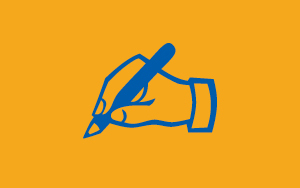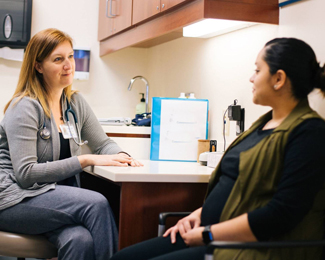Curriculum
International Class/Disease Coding I (3 semester hours)
This course will provide skills and tools for the student to join an entry-level position
as a medical coder. The course will provide an introduction to how coding and billing
in healthcare settings. The student will code cases and learn how to read and understand
patient charts. The ICD-10-CM and CPT 2021 will be introduced and used by the student.
International Class/Disease Coding II (3 semester hours)
This course will provide skills and tools for the student to enter an entry-level
position as a medical coder. The course will provide more challenging patient situations
that the student will code. The student will be introduced to coding procedures as
well as challenging charts. The student will also be analyzing the work of other students.
The ICD-10-CM and CPT 2021 will be used by the student.
Procedural Terminology Coding (3 semester hours)
Course Description: This course will provide skills and tools for the student to enter
an entry-level position as a medical coder. The course will provide procedural situations
that the student will code. The student will be introduced to coding procedures as
well as challenging charts. The student will also be analyzing the work of other students
and work as a collaborative team to manage the needs of a simulated healthcare practice.
The ICD-10-CM and CPT 2021 will be used by the student.
Medical Terminology (3 semester hours)
This course is designed to provide the medical language and nomenclature background
for students who plan to enter health care professions. Study of the uses of prefixes,
suffixes, and word roots to formulate words describing meaningful medical conditions
is emphasized as well as learning their definitions, correct pronunciation, and spelling.
Using major body systems as a guide, students will learn the basic anatomic and medical
terms related to the muscular, skeletal, respiratory, circulatory, digestive, reproductive,
and urinary systems.
Overview of the Human Body (4 semester hours)
This course will equip the student with basic knowledge and understanding of the basic
organization, structure and function of the human body. The student identifies anatomy
and explains physiology of the human body through comparative vertebrate observation
and analysis.
Experiential Learning I, II, and III (1 semester hours for each)
These courses will equip the student with experience in the healthcare field. The
student will research and contact three different healthcare organizations in their
community and observe/volunteer at the chosen site. Each experience will be 30 hours
of observational work with the creation of a research paper and presentation following
the experience. The student will be required to find and secure their own sites, which
will be approved by the instructor or program director.
Systems and Education in Healthcare-Healthcare Management I (3 semester hours)
This course will equip the student with a knowledge of future health leaders, managers,
and administrators to an understanding of the US healthcare system. Topics discussed
include the main components and issues of the organization, financing, and delivery
of health services and public health systems. The student will also develop teaching
and instructional skills to use in the healthcare setting. Upon completion of the
course, students will use critical thinking skills to apply knowledge from previous
course work to determine how the US healthcare system is organized, financed, and
delivered. As well as being equipped to teach staff, clients, family, and the community
regarding healthcare needs.
Processes in Healthcare Information (3 semester hours)
This course will equip the student with an understanding of health record keeping,
retention, storage and design of necessary forms. Students will learn the connection
between members of the healthcare system including departments, clinics and providers.
Computer hardware and software are explored in relation to healthcare information.
Basics of database management are discussed as well as Electronic Medical Records.
Disparities in Healthcare- Healthcare Management II (3 semester hours)
This course will further equip the student to use research to analyze the advantages
and disadvantages of the US healthcare system. Using evidence-based research, the
student will form critical analysis of the US healthcare system as compared to other
world-wide healthcare systems. Topics discussed include the main components and issues
of the US system, financing, and delivery of health services and public health systems
throughout the world. Power differentials and healthcare disparities will be addressed.
Upon completion of the course, students will develop a proposal for a new healthcare
system that addresses the disparities of the current US system.
Health Insurance and Reimbursement (3 semester hours)
This course will equip the student with an understanding of payment and reimbursement
methods in the US healthcare system. Students will examine forms, practices and processes
and the role of the healthcare information specialist. Data exchange from patient,
healthcare provider and payer will be explored.
Healthcare Policy (3 semester hours)
This course will equip the student with a knowledge of the US healthcare delivery
system; addresses the social, political, and economic context of US healthcare and
the distribution of medical care and pharmaceutical products and services, as well
as the role of public and private insurers, pharmaceutical industry, and managed care
organizations. Current policies as well as basic economics will be discussed within
these systems. Access to quality care will also be investigated as well as the healthcare
disparities of diverse populations
Ethics and Legal Issues in Healthcare (3 semester hours)
This course will equip the student with a knowledge of legal and ethical issues facing
healthcare professionals including racial issues and legalities regarding underserved
populations. Students will explore the basics of healthcare ethics and review ethical
situations and dilemmas. Students will begin to develop a working knowledge of various
theories and applications of healthcare law and ethics.
Community Healthcare Management – Healthcare Management III (3 semester hours)
This course will equip the student with knowledge of the concepts and methods of healthcare
management in the community. Topics will include developing programs for health improvement
and the role of community assessment and holistic care. Healthy People 2020 topics
and objectives will be discussed and used as a guide to determine healthcare deficits
and advantages within the student’s community.
LOM 320: Leadership Development (3 semester hours)
The emphasis in Module One is on the experiential nature of nontraditional education
and adult development theory. Students will be familiar with various theories and
instruments that will provide a cognitive basis for personal analysis and understanding.
The objective of this interdisciplinary module is personal discovery through examination
of issues in adulthood as studied in the fields of literature, wellness, and gender
studies.
LOM 350: Organizational Behavior (3 semester hours)
Students study the foundational theories and approaches to organization structure,
design, and culture. Primary emphasis is placed on understanding the organization
as an open system. Students will learn to utilize a systems approach in basic organizational
diagnosis. Contingency theory provides a theoretical framework for understanding the
impact of the business environment on organizational effectiveness, design, and change.
LOM 360: Groups and Individuals in the Organization (3 semester hours)
This module is a study of group and individual behavior and how group functioning
affects organizational effectiveness. Emphasis is placed on decision making, group
dynamics, emotional intelligence, and resolving conflict in groups. Students develop
strategies for efficient and productive group management and determine which tasks
are best handled by groups or individuals.
Healthcare Practicum I: (3 semester hours)
Course Description: This course will equip the student to apply leadership/management
techniques while developing a more intimate knowledge of healthcare disparities, resources,
needs and programs within the community selected by the student. The student focus
will be on choosing a management/leadership style and approach and apply it to managing
primary, secondary, and tertiary care in a variety of settings.
LOM 380: Team Dynamics (3 semester hours)
This is a practical course on the skills and practice of team building and leadership.
Students will become familiar with team types, roles, composition and processes, and
assess personal team and leadership skills. Classes are structured around weekly simulations
that provide experience with teams and team leadership. A secondary emphasis is a
focus on communications and effective interpersonal relationships. Students will also
develop understanding of theories of motivation and conflict management and their
applications in team building.
CCSCL 450: Cultural Perspectives (3 semester hours) - EMU Core Designate course
This module focuses on the development of global awareness, faith, and management
as it relates to intercultural understanding. Students will be challenged to look
beyond their own culture and understand social systems and institutions from the perspective
of people in another culture. Experiential learning will take place as students participate
in an off-campus, intercultural experience in a culture that is different from the
students’ majority orientation.
LOM 405: Organizational Research (3 semester hours) - Writing Intensive Course
This module guides the student in understanding the research process and becoming
a critical consumer of research. Organizational research concepts are examined in
both qualitative and quantitative methodologies. Students critically read and critique
organizational research.
Healthcare Practicum II (3 semester hours)
This course will equip and challenge the student to use all of the knowledge gained
in HS/HCA Practicum 1. The student will choose one or more community healthcare settings
and complete 45 hours at the setting of their choice as a volunteer. The student’s
focus will be on determining how the health setting benefits the community, and how
it is managed; including personal, financial issues and client/community interaction
with staff (customer service.)
Healthcare Comprehensive Portfolio (2 semester hours)
This course will equip the student with a comprehensive view of their educational
and professional pursuits throughout the LOM-HC program.
LOML 415: Action Planning in Organizations (1 semester hour)
This course builds on previous learning related to organizational analysis, including
problem identification, and utilizes evidence-based organizational strategies to provide
the knowledge and skills required to develop an effective action plan as part of the
capstone Application of Research Project.
BISTL 380: Biblical Perspectives (3 semester hours) - EMU Core Designate course
This course reflects the commitment of EMU as a Christian, liberal arts university,
to nurture an appreciation for the rich resources of the scriptures for creative personal
faith and human life in the modern world. It is designed to foster knowledge and understanding
of the literature and history of the Bible and the integration of faith, learning,
and living.
SRSML 460: Business Ethics (3 semester hours) - EMU Core Designate Course
In this course, the student formulates a philosophy of life, providing the base for
such concerns as ethics in business, accountability in government, respect for human
rights, and a responsible life style in our contemporary world. Ethical theories and
personal values are examined through readings, analysis of the workplace, and classroom
discussion.
LOM 410: Human Resources Management (3 semester hours)
Students explore the values and perceptions of selected groups affecting social and
economic life through an analysis of policies and practices of recruitment, selection,
training, development and compensation of employees. Special attention is given to
Equal Employment Opportunity and Office of Safety and Health Administration legislation
through a series of case studies and simulations.
LOM 420: Leadership Theory (3 semester hours)
Students examine motivational theory and its application to individual and group functioning
in work and home situations. Leadership styles related to particular circumstances
are analyzed. Negotiation is covered through readings and class practice, with an
analysis of the effect on productivity.
LOM 430 Leadership Practice (3 semester hours)
Expanding upon the previous module, students will put their leadership theories to
practice as their knowledge, skills, and abilities are tested against real-world scenarios.
Experiential and application-based learning are utilized throughout this course to
develop the student’s individual leadership style.
LOM 440: Global Trends in Economic Justice (3 semester hours) - LOM+EMU Core Designate course
This module will examine global economic trends, theories of justice, and issues of
economic justice. A variety of written materials, historical literature, and contemporary
culture are examined for their perspectives on economic justice and fairness. Local,
national, and international perspectives on economic development and justice are studied.
Students will develop a deepened and more nuanced perspective on issues of poverty
and justice.









